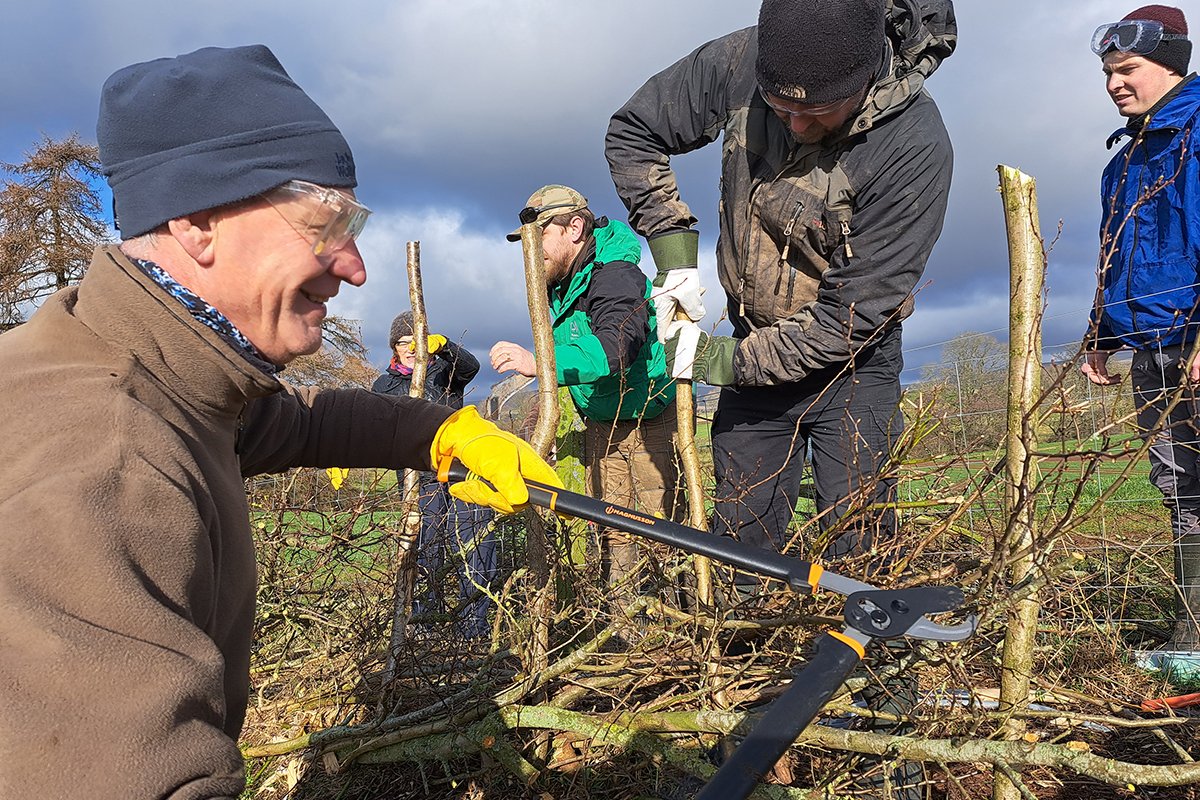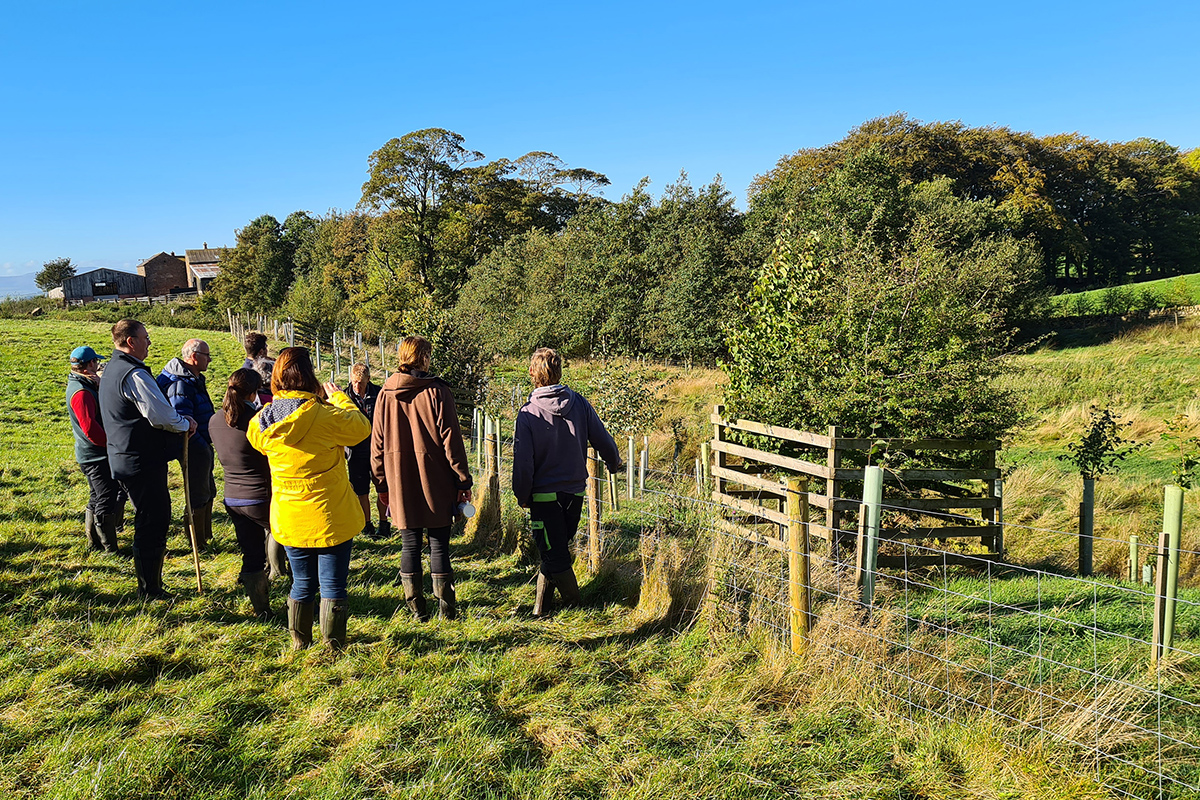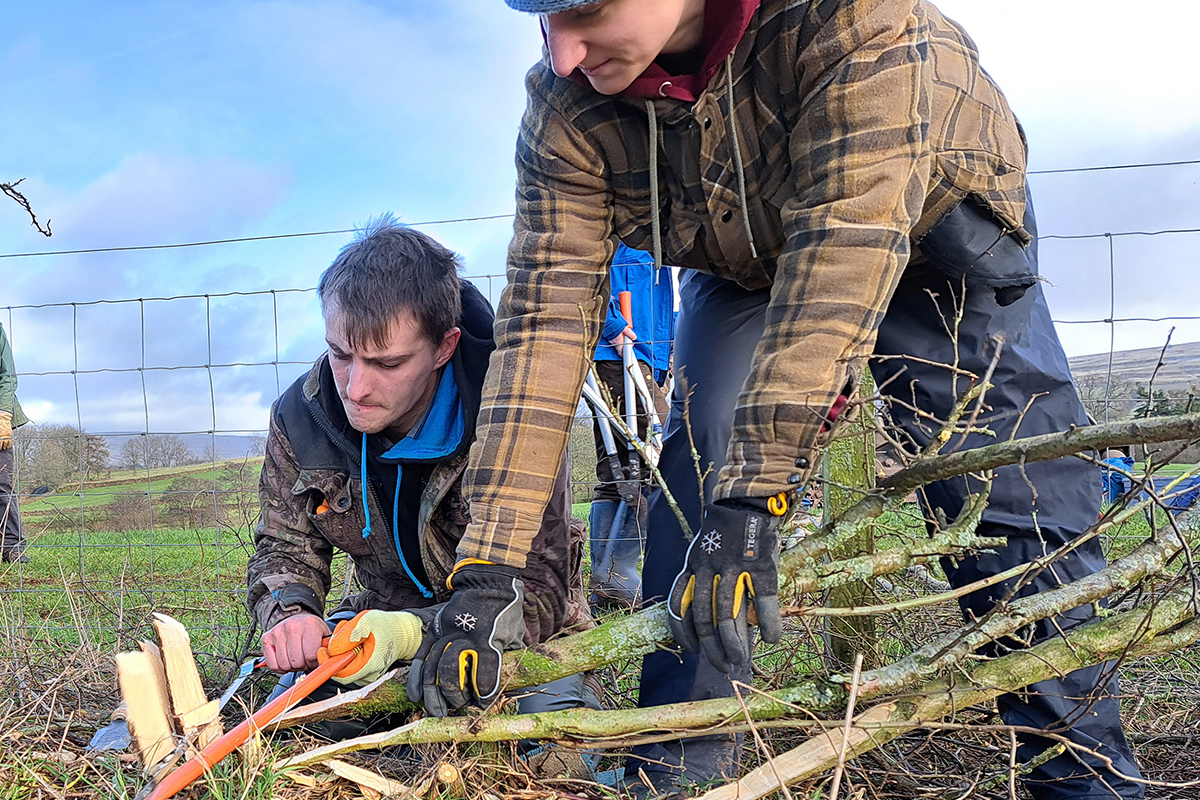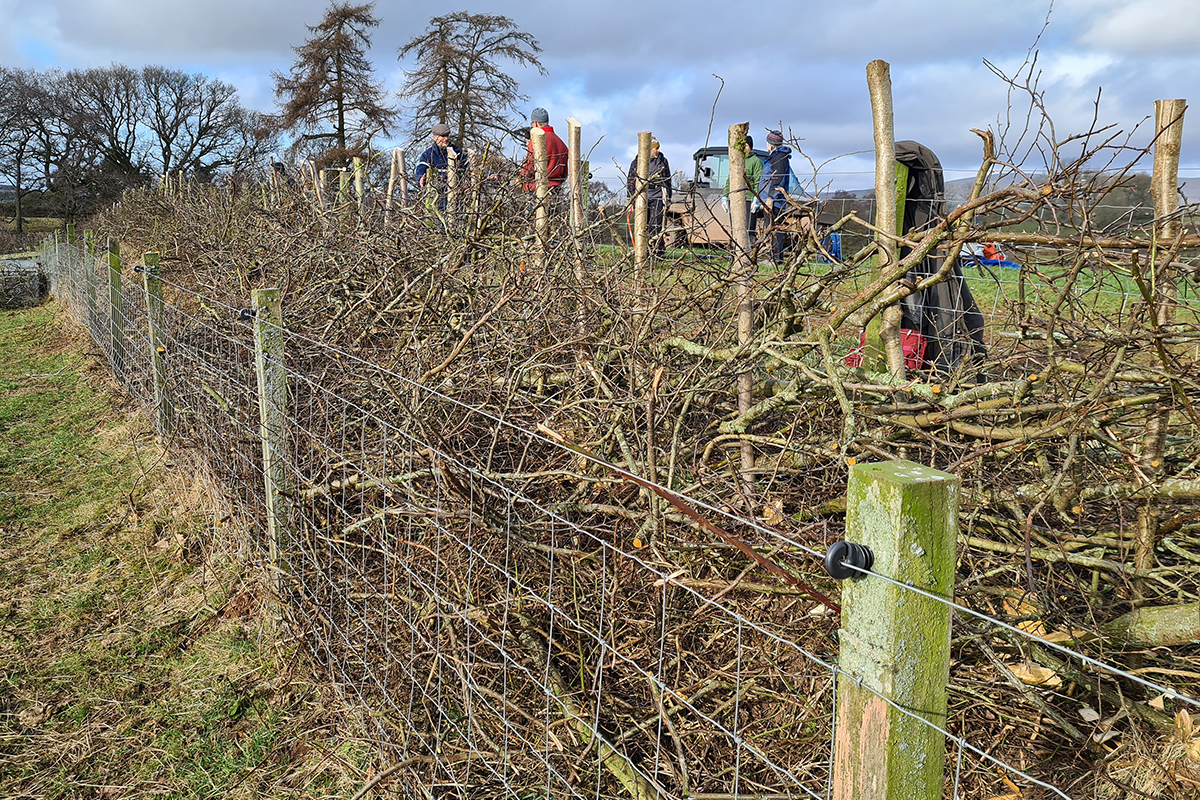A very brief introduction to Countryside Stewardship schemes and why we support them ...
Looking at Countryside Stewardship schemes and why they're good for the river, wildlife and for farm businesses

By Anna Holliday, Farming and Conservation Officer
As a river conservation charity committed to enhancing and protecting the river environment so that people and nature can thrive, we spend a lot of time working with farmers and landowners – helping them maintain profitable farming businesses whilst delivering key environmental benefits for biodiversity and water quality.
However, we recognise that farmers are under pressure on all fronts and we’re not the only environmental organisation knocking on their doors, offering events.
We needed a new approach to reach our farming community more effectively.
Partnership working is at the heart of what we do, so we saw an opportunity to bring other organisations on board; sharing our collective resources, expertise and approaches so that farmers could gain a wider appreciation of an aspect of improving water quality and management.
The final piece of the jigsaw was funding. Previous funding from Defra was prescriptive and focused on Countryside Stewardship. We looked for an organisation that could see the opportunity to widen the conversation and explore new topics and tools in water and farm management.
Thanks to support from the Environment Agency (EA), we were able to put together Water Works, a programme of events with accompanying resources that could be flexible in terms of the topics covered as well as the freedom to offer them widely throughout the Eden catchment, not just focused on a particular sub-catchment.
We joined forces with partners, The Farmer Network, Woodland Trust and Forestry Commission to hold a series of six events called Water Works that would cover the pressing topics in water management and farming, all linked to the importance of good water quality.
With support in place from the Environment Agency (EA), we were able to put together a programme that could be flexible in terms of the topics covered and allow us to tackle new ones, as well as the freedom to offer them widely throughout the Eden catchment, not just focused on a particular sub-catchment.

Agroforestry event at Renison's Farm. Farm walk looking at wooden tree enclosures, shelter belts and more
We have been working tirelessly to take a forward-thinking approach with our events, turning the traditional ‘death by PowerPoint’ in a soulless meeting room into truly interactive events where the farmers who are making water work on their farms can share their experience and showcase their initiatives. Having the right people in the room is key to a successful event. We believe in bringing a wide range of experts, farmers and perspectives together to spark lively debate and get the latest and most accurate information straight from the horse’s mouth!
With this in mind, the Water Works events programme delivered a variety of sessions – from farm walks to hands-on demonstrations and workshops, with a range of experts to quiz at every turn. Each event was held in a different part of the catchment so that farmers could get the most benefit possible. It was a great success, with over 140 attending who told us that found the events ‘informative’, ‘engaging’ and ‘well organised.’
The topics covered were all pertinent and at the heart of the uncertainty within the sector. Carbon auditing, Nutrient Neutrality and Biodiversity Net Gain were all of an evolving nature, whereas others, such as the slurry infrastructure grant encompassed new rules, regulations and grants that need to be closely followed to access these vital opportunities.

Lopping branches and placing uprights to create the hedge structure
We were keen to include topics such as hedge laying and agroforestry that involve traditional skills and techniques at risk of dying out.
By ensuring the continuation of traditional agricultural practices and knowledge and incorporating them into our current innovative farming systems, we can ensure the protection and progression of agrobiodiversity and food security. For instance, incorporating silvopasture (trees within grazed pasture) and silvoarable (trees within arable system) to assist our farming systems in their resilience to climate change and drought.

Dani Blair cutting the stem at an angle ready to be laid.

The freshly-laid hedge
The topic of Nutrient Neutrality was a riskier one to include – being a new initiative with guidance still being developed. Regardless, we felt it was an important one to cover to bridge the gap in communication between land agents/Natural England to farmers and landowners. It was a popular event with many important discussions and a variety of attendees. It’s an evolving topic and one we will continue to explore with the farming community, helping them to be in the best position to make informed decisions for their businesses and as custodians of their land and rivers.
Although Water Works has now finished, Eden Rivers Trust continues to facilitate a Countryside Stewardship Facilitation Fund farmer group, called the Fellside Group, based in the inbye land of the west of the North Pennines AONB. Within this group, we run one or two events every 3 months on a range of topics, approved by the group members.
New members are always welcome, contact Anna Holliday on 0768 866788 for more information.
As a charity, Eden Rivers Trust relies on funding to run our events and we’re always happy to talk to anyone who is interested in supporting future Water Works or water-friendly farming events.

Our work over the years has established and built upon relationships with the farming community and has resulted in improved water quality in our watercourses. We want to take this further, to reach more farmers, do more groundwork and achieve even bigger results. But we cannot do it without your support.
To help, please follow us on social media, sign up to our newsletter, donate if you can and attend our farmer meetings where applicable – help us to restore our rivers so that the Eden can support a brighter future for all.